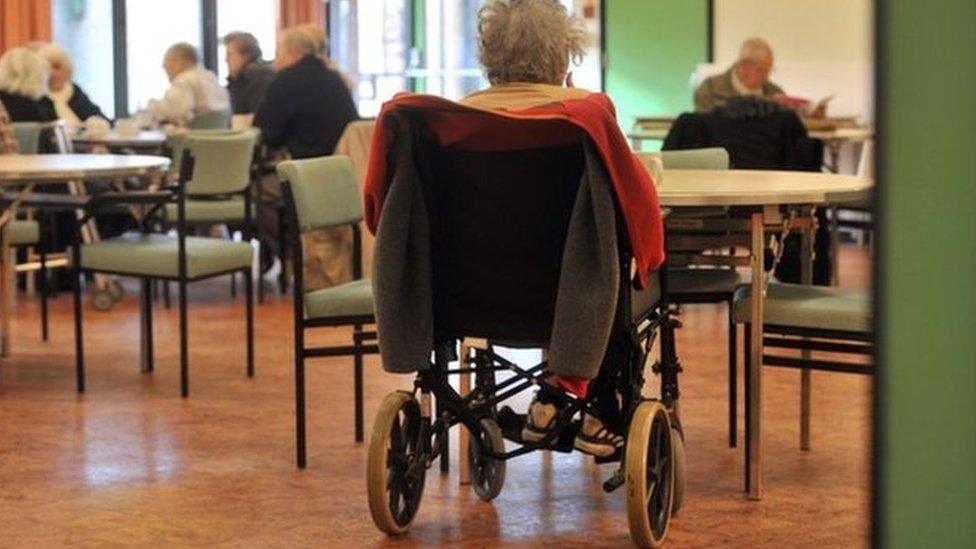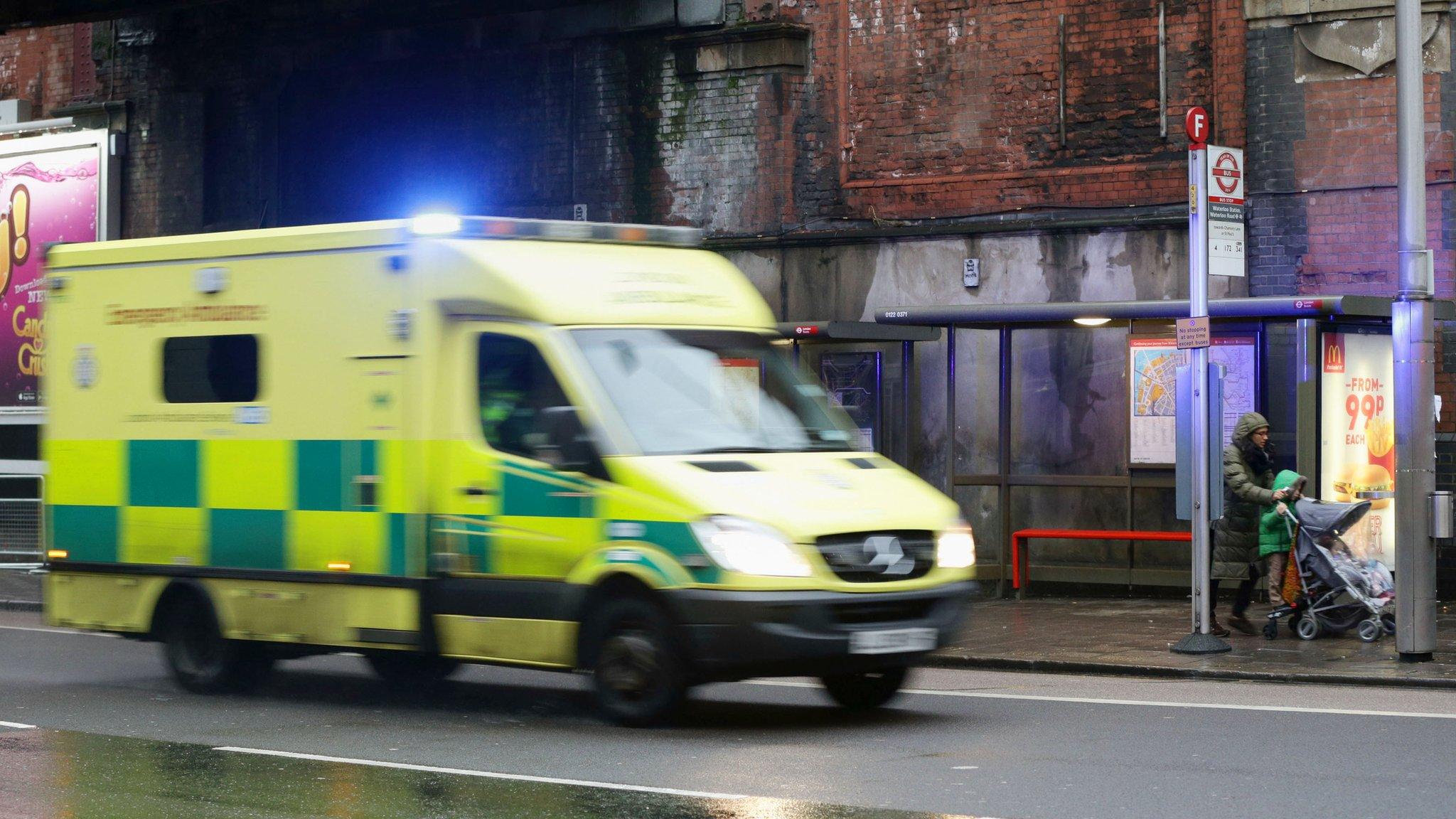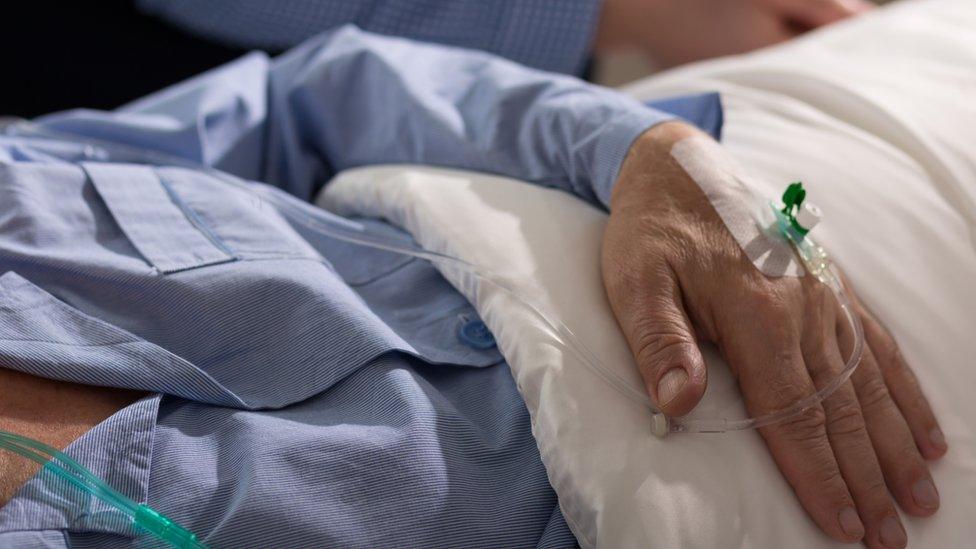A&E matron: It's like the most complex chess game ever
- Published

Winter is the most difficult time of year for the NHS. As part of the BBC's NHS Winter series, front-line staff explain what life is like. Here A&E matron Jackie Thompson speaks about why managing her department is like a game of chess and how the common cold can bring the service to its knees.
There is only one way to describe life in A&E, says matron Jackie Thompson. "It's like the most complex game of chess… ever."
She is in charge of the team of nurses and healthcare assistants at East Surrey Hospital's A&E unit. It is a large district general hospital in Redhill, three miles outside the M25 in the London commuter belt.
So far it has been coping well with winter. While the NHS overall struggles to meet the four-hour waiting time target, East Surrey is currently hitting it.
"It takes a lot of doing, a lot of juggling," says Ms Thompson who has been the emergency department matron for over four years.

The NHS in winter: Want to know more?

Special report page:, external For the latest news, analysis and video
Winter across the UK: A guide to how the NHS is coping
Video: Why hospitals are under so much pressure
Video: How a hospital can grind to a halt

"My day starts with assessing whether we have the right mix of staff and enough supplies to cope with the patients there.
"I liaise with the rest of the hospital and if we need to, we can look to move resources around. It's then all go.
"I have a constant eye on the ambulances arriving, the patients we are trying to find beds for, who needs tests done. You have to keep things moving."
The department has 55 treatment spaces, plus room for 30 patients in the waiting room and another 10 in an internal waiting area.
"Most days we are full - so we are constantly trying to manage it. The trick is to assess patients quickly when they arrive to determine what help they need.
"We have great in-reach from the rest of the hospital. Specialists from all the departments - surgery, medicine and orthopaedics - who will come in and help us determine what each patient needs.
"We can also make patients appointments with clinics in a day or two if it is clear they are not acutely ill at that moment.
"There is a lot of work that goes into keeping people at home. We have a team of occupational therapists and physios who help deal with patients who just need a bit of extra support at home. But there is no getting away from it, it's busy. Every day."


She says the ageing population and rise in long-term conditions are major factors. She describes the growing number of older people being seen in hospitals as one of the biggest changes during her 28-year career on the front line.
"It has been gradual, but is very noticeable now. I think probably every day we will see someone over the age of 100 in the department and certainly half our patients are over the age of 65.
"And the problem with these patients is that just something like a common cold means they can deteriorate quickly. They often have multiple long-term conditions, they may not be keeping hydrated and they end up here.
"Falls and trips are also a big problem and can cause quite serious injuries.
"Then they are more likely to need admitting into hospital, to need extra tests and support. That all takes time, we can't just treat and discharge them.
"In the winter we are probably not any busier in terms of numbers coming in - about 250 a day - than we are in the summer. But what is different is that the people we see and more ill and frail. It is difficult, but we do our best."
That, of course, entails long days, often working past the time shifts finish for both her and her staff. But she also says it is important not to over work.
"You have to be careful. I try to ensure that if a member of staff has had a particularly difficult day we keep an eye out and perhaps ensure they are not in such a demanding role the following day. It's not always possible or necessary, but it is something we are all aware of.
"You also have to make sure, when appropriate, you do leave. It benefits no-one to have doctors and nurses working past their hours all the time."
But with the most difficult months of winter to come, keeping to that could well be difficult.
- Published10 December 2015
- Published9 December 2015

- Published27 November 2015

- Published25 November 2015

- Published12 November 2015

- Published12 November 2015
- Published9 October 2015

- Published9 October 2015